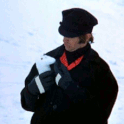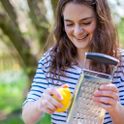Differences in basic American & English ingredients.
I'm British, but when I moved to Los Angeles last year for the first time I started cooking out of American baking books. Recipes and books that worked great for me in California keep going wrong and I can't understand why. I've checked I've got translations of measurements/ cooked using cups so many times, as well as the oven temperature. First my roll out cookies were a disaster and far too short, and now I've tried Snickerdoodles for the first time from the same book (Joy The Baker) and they've had the same problem. It *feels* like I'm using too much flour, but I've checked I'm not. So, does anyone know any differences in things like flour that I'm going wrong with. In LA I used Whole Foods All Purpose Flour as it felt one of the best qualities I tried, and it the UK I use high quality plain flour. I always use large eggs, and even in America I used the same French or Irish unsalted butter. All the British recipes I used to make all the time worked with American ingredients, and while I have not tried cakes yet, brownies have worked. It has only been my cookies that have been a total failure.
9 Comments
http://www.cookitsimply.com/measurements/
It has metric equivalents for American measurements.




